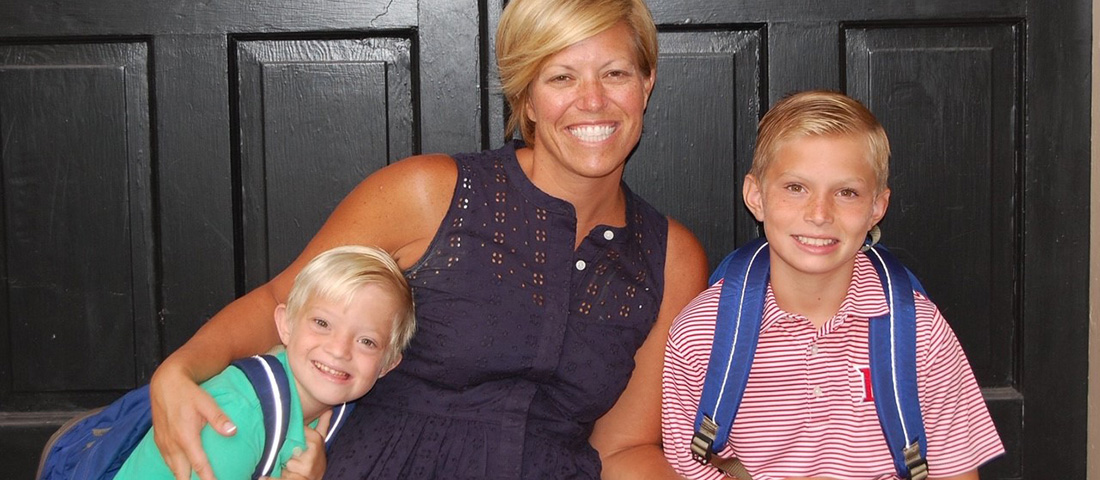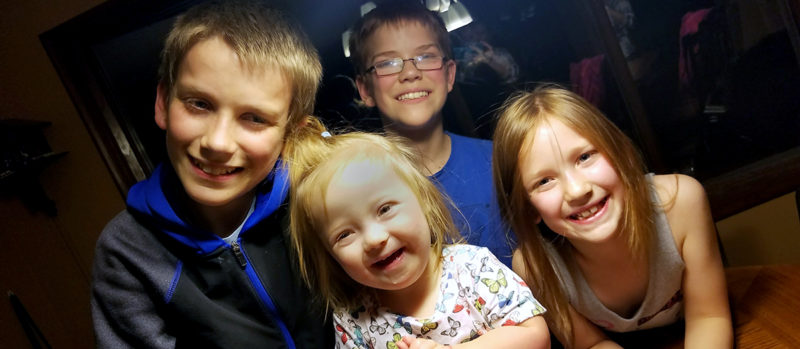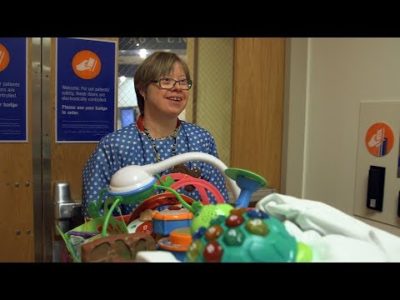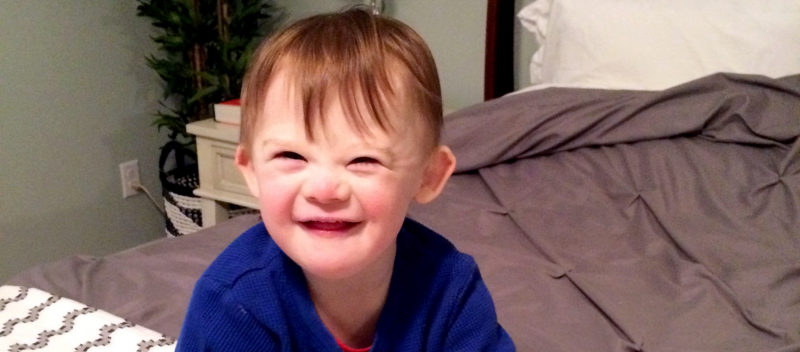That’s my Jack on the left. His blonde hair says he has the best attendance of all members at our local swim club. The backpack says he’s ready for the first day of school. His crooked smile is silliness. The almond-shaped eyes, low-set ears, and delightfully soft skin indicative of low muscle tone, is demonstrative that Jack has Down syndrome.
See Past Down Syndrome
October is Down syndrome awareness month. One of the things we like to impart on people when we talk about Down syndrome is that it is so important to see past disability, to notice a person’s heart, to ask about their interests, to assume competence. Shortly after Jack was born, we considered how we would tell his big brother, Griffin, about Jack’s diagnosis of Down syndrome. Ultimately, we settled on telling Griffin that Jack would be able to do everything that Griffin could do. Jack just may do things slower, and it may take him longer to learn how to do them.
His Inclusive Environment
You may see Jack and assume that he goes to school in a secluded classroom, maybe attending special area classes with his typical peers. Jack goes to his special education classroom about an hour a day. There he works on goals that are uniquely designed for him, gets the sensory input he needs, and has an extra set of hands to walk him through classwork that is difficult.
He thrives during the other seven hours of his day in his general education classroom with his typically-abled peers. Jack takes spelling tests, reads library books, and is working on times tables. He takes up his tray in the cafeteria, joins the kick ball games on the playground, and sits in that sea of children at assemblies. The people at Jack’s school have established a beautifully inclusive environment where the children truly appreciate one another and support each other when necessary. As a result, Jack goes to birthday parties and sleepovers, plays basketball in his school’s league, and blends right in during class performances.
Lover of Disability-Specific Activities
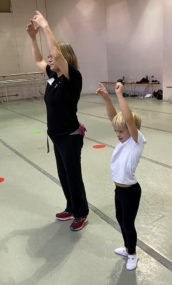
Jack loves the disability-specific activities he does. Cincinnati Children’s and the Cincinnati Ballet partner to provide a ballet program called Ballet Moves. This program is designed specifically for people with Down syndrome and cerebral palsy. Jack has participated in the program since its inception and even earned a role as Party Boy Number One in the Cincinnati Ballet’s performance of the Nutcracker! Proving he was born for the stage, at his first dress rehearsal, he looked into the sea of empty seats, and said, “Hi, people!!!!” He was ready for all eyes to be on Jack!
He also started Special Olympics swimming with the Northern Kentucky Dolphins. This group is run by Debbie Ogden, who coincidentally works at Cincinnati Children’s. By the end of his first season, Jack was swimming laps of freestyle completely independently!
Lover of Many Sports
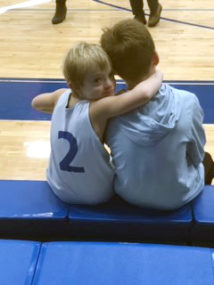
But Jack doesn’t just do activities that are designed for people with disabilities. Over the years, in addition to basketball, he’s done baseball, soccer, and swimming with his typically-abled peers. He cheers for his buddies, scores points, tells me what snacks to bring when it’s our turn (cookies and chocolate milk), and displays his trophies and medals on shelves in his room just like his big brother. Sure, players from both teams often rebound and hand the ball back to Jack so he is ensured at least one basket a season. When he was really little, they’d have to sidestep to avoid stepping on Jack when he’d decide he’d rather rest than play basketball. None of those players seemed to mind. And Jack was just one of the guys.
Friendships are the highlight
Friends are the highlight of Jack’s life. He has a couple of really great best buddies and lots of friends at the pool, school, in his activities, and at church. Like a lot people, Jack is motivated by his peer interactions. If he does not want to go to church, we remind him that his friends will be there. He’ll get to swing with Mr. Matt. Emma will want to play in the bubble machine. Olivia will probably read a book with him. As a result, he practically runs out the door in excitement. I love that his friends seem to span many ages, abilities, and races.
We have taught Jack about Down syndrome and think it is extremely important that he is objective about his strengths and stretches. If he can’t reach something, we remind him that he’s short and encourage him to get a chair to be independent. If he gets to the bottom of a hill on a sled and looks up at the huge hill he has to mount, we try to remind him that it might take him longer, and he might get more tired than his friends, but there’s a lot more to life than speed and endurance. We walk every one of those steps back up the hill with Jack, celebrating when he conquers the hills with another ride down!
Learning to advocate for himself
That same awareness and advocacy is important in Jack’s friendships. He is learning to ask friends to slow down so he can keep up. His friends, young and old, are so, so willing to do so. If the neighbors are riding bikes, they’ll switch to scooters so Jack can play. If they’re playing hide and seek, they’ll acquiesce to having Jack hide with them, knowing he’ll give up their hiding spots with his sneaky “hi” from behind the bushes!
And that’s exactly what we want the world to know about loving someone with Down syndrome – or anybody with different abilities, for that matter. The thing Jack wants more than anything is to be a part. To participate. To be heard. Even if it takes an extra five minutes or giving up your hiding spot, we recommend that you extend a friendly “hello” to a neighbor with Down syndrome.
To learn more about our Thomas Center for Down Syndrome Services at Cincinnati Children’s, please call 513-636-4611 or visit our website.

